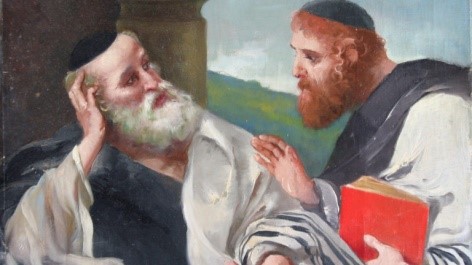This week’s parsha is about Karbanot, that is: “sacrifices” or “offerings”. According to the Jewish Virtual Library, the word Karbanot comes from the root Qof-Resh-Bet, which means “to draw near.” Sacrifices are to help us draw near to God.
In Moses’ time the way you drew near to God was to sacrifice animals or grain. There were different types of sacrifice. For example, there was the sh’lamim, or peace offering, expressing thanks to God for “His” gifts. The sh’lamim was offered, for example, when a person lived through a serious illness. Today we still say a prayer of thanks after being really sick or getting back from a long trip. (Though of course, we don’t kill an animal.)
Many centuries ago, in 71 C.E., the Romans destroyed Jerusalem and the Second Temple. Rabbi Yochanan ben Zakkai faked his own death and had his students smuggle him out of Jerusalem in a coffin. (Imagine what lying in a coffin, afraid of getting caught, must have been like for Rabbi Yochanan!) Later, he founded a school to continue Jewish learning.
When one of the Rabbi’s students saw the Holy Temple destroyed, he said: This is terrible! They’ve destroyed the place where all of Israel’s sins are forgiven (meaning the place of sacrifice in the temple where the Chatat or “sin” offering was made.) Rabbi Yochanan said to him: Don’t be upset. We have a form of atonement just like it: Acts of kindness.”
Judaism has changed since the times when Aaron the High Priest killed goats and bulls in the Dwelling in order to draw near to God. Now we have different forms of sacrifice.

Food for thought
What types of sacrifices have you or the people around you made? How do you draw near to God?
